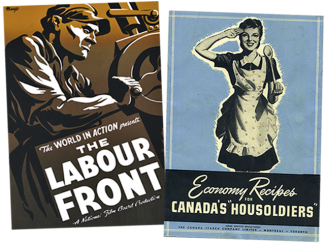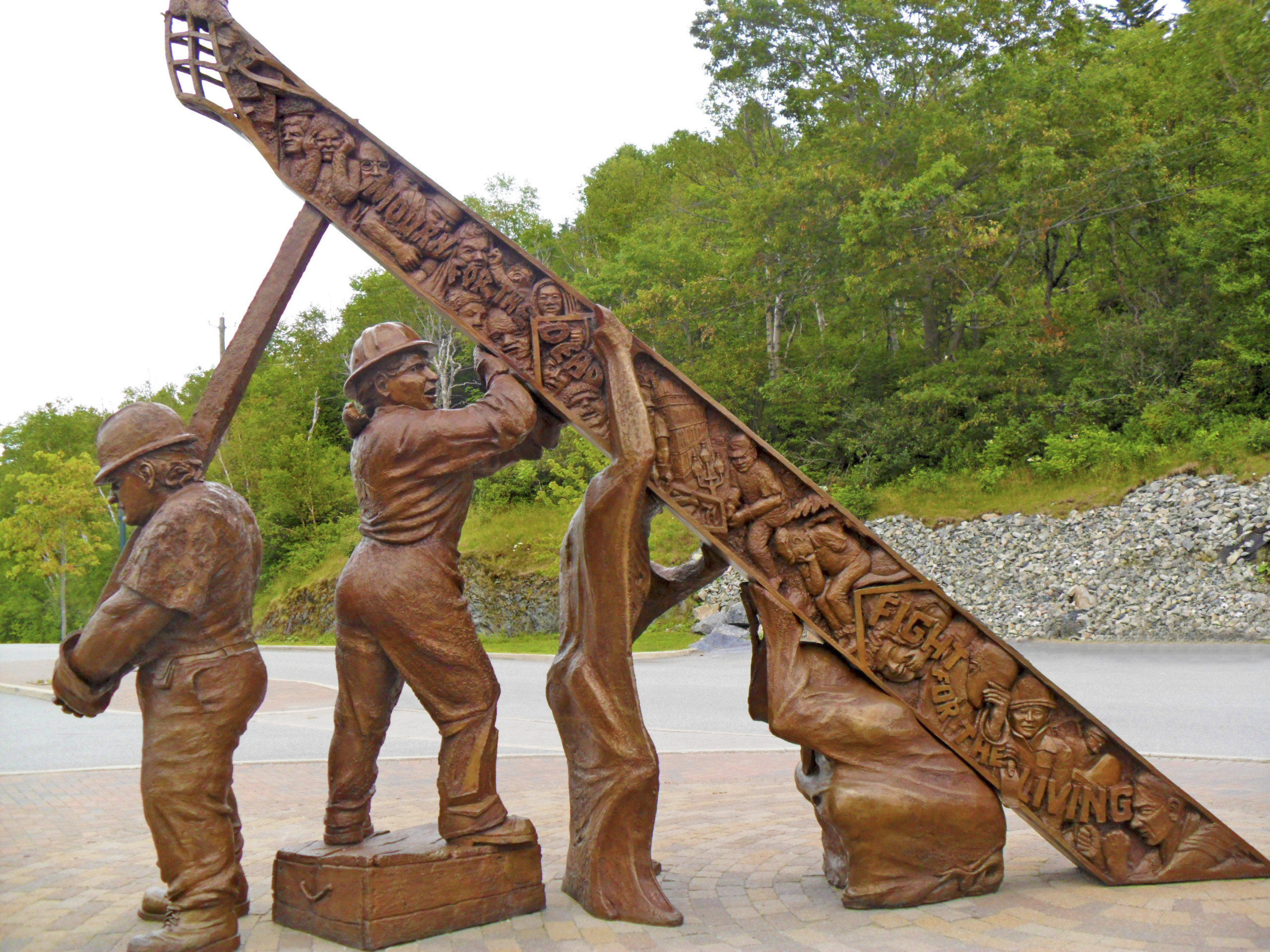HEROES AT WORK
Honouring our military is a working-class thing

Canadian propoganda posters from World War II

WE KNOW THEY ARE NOT HEROES. Not the kind we give medals to, anyway.
We know it takes more than signing up, putting on a uniform and doing a five, ten or even thirty year hitch in our military to make you a hero; the kind of hero they write poems about, give medals to and make movies about. We know the men and women in uniform standing in line with us at a Timmy’s, or sitting in the special section in the stands at a football game on Military Appreciation Night are not those kind of heroes. But it doesn’t matter.
It doesn’t matter because they are our kind of heroes—the kind we all are. They are ordinary, everyday heroes who simply step up and do what has to be done: for family, friends, neighbours. Whatever it takes to make Canada a good place to live.
True patriot love
If “true patriot love” exists, this is it. It belongs to all of us. It IS all of us. How we work together. How we live together. How we live up to our best wishes for ourselves. We don’t need waving flags, marching bands, fly pasts and honour guards in camo jackets to confirm it. But we take it.
We take it because it is all we get. It is all they give us. It is the closest we will ever get to an official recognition of how important all of us ordinary, everyday people are.
“Honoring the troops” feels good. That’s because it’s the most respect our culture ever accords to all working-class people. We take pleasure in honoring soldiers because we know that ordinary people deserve glory too. Without rituals like these, we would be left with no one to be our heroes save rich athletes and entertainers.
The ranks and ranks of women and men in our military are everyday working people just like the rest of us—working-class heroes. But none of us will ever get recognized for that. So, when we have a Military Appreciation Night we know, deep down, it is also about who we all are and what we all do, in our millions. We know we are the backbone of the country—when we wear a uniform, and when we don’t.
This reality—the fact that we are, all by ourselves, “the true North strong and free”—frightens the bejeezus out of the ruling class. So, they steal it from us. They use all their powers of propaganda and influence to make jingoism the sole outlet for what is really working-class solidarity.
Patriotism is not jingoism
Our task must be to elevate the working-class without the jingoism.
Begin with the fact war is hell. It is an assault on the humane. It sanctions torture, terror, and mass death. It is not desirable or defensible. Fighting and killing for your country is still fighting and killing. If we truly want a more peaceful and democratic world, we must wean ourselves from even mild worship of violent nationalism.
As well, there’s a rank hypocrisy to all the Remembrance Day ceremonies and all the sentimental lionization of soldiers, when so many veterans end up being treated as disposable after their service—just like any other workers; the health care offered to them is often inadequate, especially mental health care, and more of our vets than we care to admit end up homeless.
It’s possible to elevate the working-class without belligerent celebration of slaughter. In fact, it’s been done before. Even in the middle of a WWII, it was the strength, resilience and courage of everyday working people that was celebrated in all our propaganda—not only our capacity to kill.
Monuments to all we do
During the New Deal in the 1930s in the USA, the government sponsored public art all over the country that told the stories of ordinary people’s labour, and their crucial contributions to American society.
The New Deal, by creating so much—not only these artworks, but post offices, airports, schools, libraries, bridges, swimming pools, breakwaters, hospitals, sewers, and much more—built a landscape that is itself a celebration of the workers who constructed it. They provide a visual reminder of all that ordinary, everyday people can do.

Monument to honour working people at Hatheway Labour Exhibit Centre in Saint John, N.B.
In Canada there are few public or private monuments to mark the value of everyday working people. One was unveiled in 2011 in the courtyard of the privately-funded Frank and Ella Hatheway Labour Exhibit Centre in Saint John, N.B. The large sculpture is intended to: “Celebrate, Remember, and Honour the women and men who have been injured or died while at work in and around the city of Saint John.”
Even corporations sometimes recognize the emotional power of honoring ordinary people. It is now common for many companies who are most abusive to their workers, like Amazon and Exxon, to feature their workers in big public relations campaigns. But such gestures don’t make up for the abuse workers experience on the job.
These gestures feel false and contrived, because they are. A true cultural alternative will only come with political change that honours everyday people. When that comes, workers will be able to get out from under the military umbrella and directly assert their own solidarity as the best expression of “true patriot love”.
- 30 -













Add new comment